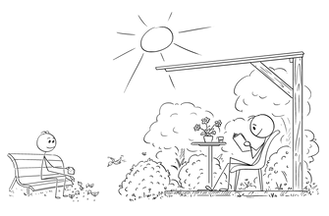Parenting a PDAer
Short Read Guide
What is PDA?
A guide for those raising a child who simply cannot be parented in the way the world expects.
“It’s like you’re gaming and you have the main controller, and then someone yanks that controller away and you lose control and feel panicky.”
If you’re here, it’s probably because things feel impossibly hard......
You’ve tried everything — sticker charts, firm boundaries, no boundaries, iPads, no iPads, parenting courses, deep breaths. But there’s still conflict. Still exhaustion.
Pathological Demand Avoidance, or PDA, is a distinct neurodevelopmental wiring, a profile within the autism spectrum, that turns much of what we’ve been taught about children on its head.
PDA is not defiance. It’s survival.
For a PDAer, everyday demands ... even ones they enjoy or ask for, can feel like pressure, l
ike danger. And when the world feels unsafe, their nervous system protects them through
fight, flight, shutdown, fawning, or masking.
“It’s like a great big whoosh of ‘NO!!!!’”


This isn’t bad behaviour. It’s a distress signal. A brain in panic. A body trying to survive a sabre-tooth tiger named ‘demands’.
Understanding PDA doesn’t mean letting go of your role as a parent. It means letting go of the idea that parenting should look a certain way. It means shifting from fixing to listening. From compliance to connection. From control to compassion.
Let’s begin - not with fear or labels, but with honesty and hope.
What Does PDA Look Like?
You’re not imagining it. You’re not making excuses. And you are not a weak parent.
You are raising a child whose brain doesn’t do automatic compliance — who doesn’t accept “power over” just because you’ve been alive longer. PDA isn’t a behaviour that comes and goes. It’s a consistent, pervasive neurobiological profile, always present. What changes is how visible it is — depending on stress, masking, and safety.
Sometimes, you see the panic: refusal, rage, meltdowns.
Other times, you see the masking: the smile, the performance, the people-pleasing.
But underneath both is a child constantly scanning for loss of autonomy, control and demands.
When your child screams over toast being cut the wrong way, or freezes over brushing teeth — this isn’t manipulation. It’s not “being PDA.” It’s your child reaching the edge of what they can contain.
“It’s like my heart wants to do something, but my brain says no — and no matter how hard I try, my brain just won’t let me do it.”
When regulated, PDAers can be deeply empathetic, funny, articulate, justice-driven, and creatively brilliant. When dysregulated, you may see shutdowns, emotional explosions, masking, meltdowns, and self-sacrifice through chronic people-pleasing.
“They go from zero to 100%” is a common phrase. But what if they’re actually at 80% all day — holding it in, moment after moment?
Living with PDA doesn’t feel like parenting in the traditional sense. It feels like survival. Like firefighting. Like doing everything - and still feeling like it’s not enough.
“Parenting my PDA kid means I’ve become a full-time hostage negotiator, improv actor, and emotional detective — all before breakfast.”
But when you stop seeing behaviour and start seeing fear — when you recognise control not as defiance but as a cry for safety — that’s when things start to shift.

Why Conventional Parenting Strategies Simply Don’t Work
Let’s say it plainly: you’ve tried everything.
Sticker charts. Sand timers. Time-outs. Firmer tone. Softer tone. Discipline. Conviction. Parenting courses. Removing the iPad. Giving the iPad back, with conditions attached. Removing the iPad again.
Nothing sticks.
And so the thought creeps in: Maybe it’s me. Maybe I’m the parent who just can’t parent.
Because the world keeps telling you that if you do it “right,” your child will comply. That with clear boundaries, consistent consequences, and the right tone of voice, they’ll choose to cooperate.
But PDA doesn’t work like that.
Your child isn’t wired to respond to pressure, even gentle pressure, with cooperation. They respond with survival. For them, a simple request “Brush your teeth,” “Say thank you,” “Get in the car” can feel like a threat.
Not because they’re unwilling.
Because the expectation itself robs them of autonomy and with it, safety.
Even your encouragement, your joy, your pride can feel like pressure.
Another demand. Another standard to meet. Another thing to resist.
That’s why so much well-meaning advice backfires:
-
Rewards become pressure.
-
Praise becomes performance.
-
Firm boundaries become battles.
-
Gentle scripts become just another demand.
And when that pressure builds, your child pushes back or shuts down completely.
They’re not being defiant. They’re defending themselves.
You’re not failing. You’re parenting a nervous system that feels as though it is on fire.
And every time you reach for the tools you were given consistency, consequences, control it burns.
It burns the trust. The connection. And sometimes, it burns you out too.


You haven’t failed.
You’ve simply been handed the wrong manual for your child.
PDAers don’t need firmer discipline or better routines.
They need space. Safety. Autonomy.
They need adults who can lean back just enough to let their nervous systems breathe.
Because when safety is real truly felt the resistance begins to melt.
What Actually Helps?
So how do you parent a child when all the usual rules don’t apply?
You stop trying to fix.
You step out of the power struggle.
You begin to lean back not to let go, but to make space.
To meet your child where they are, not where you wish they could be.
This isn’t about a new strategy , it’s about a shift in lens:
From control → to connection
From compliance → to co-regulation
From parenting for outcomes → to parenting from presence
It looks like…



What helps is not about having all the answers, it’s staying in the room when there aren’t any.
It’s seeing beyond the behaviour, and listening to the fear.
You're not raising a problem to solve.
You're raising a person to understand.
And slowly, they begin to feel it:
That you're not waiting for them to change in order to love them.
That love is already here.
Your one job is to love your child.


